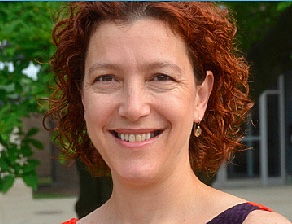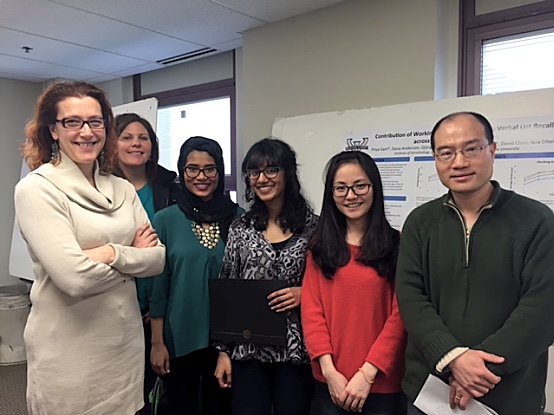 Dr. Noa Ofen, PhD, a researcher in lifespan cognitive neuroscience at Wayne State University in Detroit, received a five-year, $1.9 million grant recently from the U.S. National Institute of Mental Health of the National Institutes of Health, to study development of memory networks in children.
Dr. Noa Ofen, PhD, a researcher in lifespan cognitive neuroscience at Wayne State University in Detroit, received a five-year, $1.9 million grant recently from the U.S. National Institute of Mental Health of the National Institutes of Health, to study development of memory networks in children.
Ofen and her research team at the Ofen Lab for Cognitive and Brain Development, will investigate brain activity that is predictive of memory formation in children who undergo surgery to manage medically uncontrolled epilepsy.
Photo courtesy Often Lab, Wayne State University
The Ofen lab team’s main research goals involve testing developmental effects in a wide variety of memory paradigms, such as recall and recognition, associative memory and emotional memory. They are also interested in the effects of cognitive control, executive functions, and growth in knowledge base on memory development.
“Little is known about how memory systems develop in the human brain,” Ofen said in a press release. “In this project, we will use a combination of unique neuroimaging methodologies that allow us to add new insights about the neural basis of memory development. We also hope this project will be a first step toward clinical applications that can ultimately improve the quality of life of children with focal epilepsy.”
Because common noninvasive neuroimaging methods such as functional MRI or EEG cannot simultaneously measure the spatial and temporal dimensions of the neural correlates of memory at high-resolution, electrodes will be implanted on the brain surface enabling investigators to make electrical recordings while the child performs standard memory tasks.
The procedure, intracranial electrocorticography (ECoG), is highly invasive but the pediatric patients with focal epilepsy who will undergo pre-surgical assessment will also undergo ECoG as part of the process. ECoG provides excellent spatial and temporal resolution.
The technique will allow the researchers to examine exactly which neurons do what during memory formation, and to study the action as it happens (real-time), for potential predictors of whether information or experiences will be remembered after surgery. They will also use the information to map memory networks of the brain. MRI data from a subset of the children with epilepsy and from a larger group without the disease, will be utilized for understanding how age affects the activation of memory and connections between memory network regions.
 According to an Epilepsy Research UK press release, the project is essential for providing detailed identification of memory network function in the developing brain. The Ofen lab research team also hopes to extend mapping of memory networks to key areas of the brain in order to determine what measures can be taken to avoid damaging the networks during surgery.
According to an Epilepsy Research UK press release, the project is essential for providing detailed identification of memory network function in the developing brain. The Ofen lab research team also hopes to extend mapping of memory networks to key areas of the brain in order to determine what measures can be taken to avoid damaging the networks during surgery.
 “Our overarching goal is to identify the spatial and temporal dynamics of memory networks in the developing human brain,” Ofen said.
“Our overarching goal is to identify the spatial and temporal dynamics of memory networks in the developing human brain,” Ofen said.
She hopes to lay a foundation for extended mapping of the brain’s “eloquent tissue” in children. Pre-surgical brain mapping of memory networks can reduce the post-surgery memory decline that sometimes occurs after surgical removal of the seizure focus. Memory decline is linked to health issues that occur later in life and negatively impact quality of life.


